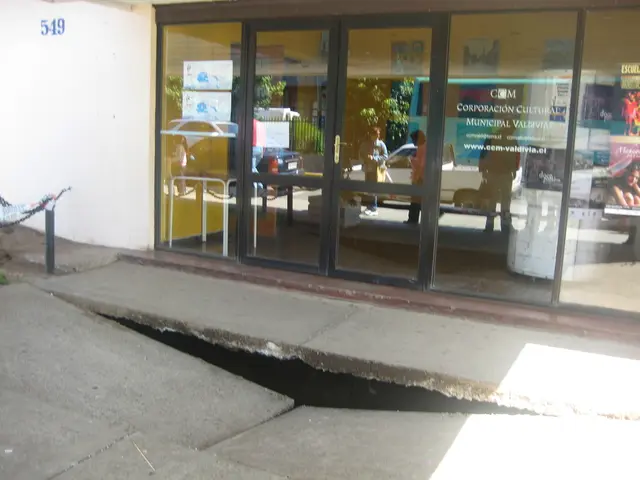Increased mortality from cholera in Sudan: over 1,600 fatalities reported
Sudan's Ongoing Crisis: Cholera Outbreak Claims Over 1600 Lives
A humanitarian disaster of "catastrophic proportions" unfolds in Sudan, according to the World Health Organization (WHO). The war-torn African nation has reported approximately 60,000 cases of cholera, resulting in the death of 1,640 individuals since the epidemic began in August 2024. The contagion typically spreads via contaminated water.
The third year of civil war in Sudan has made combating the epidemic extremely challenging. Millions of people have been displaced due to fighting between the SAF government army and the RSF militia, residing in overcrowded refugee camps. Hygienic conditions within these camps are often poor, access to clean water is limited, and this situation facilitates the rapid spread of infectious diseases, the WHO states.
In addition to cholera, dengue fever cases are on the rise in Sudan, according to WHO reports. Moreover, Sudanese refugees are also reporting disease cases in neighboring countries such as Chad (malaria, acute respiratory infections, and diarrhea) and South Sudan (rampant malaria and diarrhea, including a cholera epidemic). Many refugees arriving in these regions are undernourished and weakened, making them particularly susceptible to disease.
Efforts to contain the health crisis within Sudan have been hampered by the destruction of hospitals due to bombs and fighting, as well as looting by conflicting parties. In many cases, ambulances and health centers have been attacked or blocked, leading to a critical shortage of qualified healthcare professionals and operational facilities. The World Health Organization reports that as many as 70-80% of health facilities in Sudan are either completely closed or barely functioning.
Refugees from Sudan's Darfur region have also traveled to Chad, straining local health systems. Similarly, countries such as South Sudan, Egypt, Ethiopia, Libya, and the Central African Republic are all grappling with the influx of Sudanese refugees, putting enormous pressure on their health services. The complex humanitarian crisis is further complicated by delays in aid delivery, resource constraints, and ongoing attacks on health infrastructure.
Sources: ntv.de, DPA
References
[1] NPR. (2025, April). Sudan conflict deepens health crisis as millions face displacement, disease. Retrieved from https://www.npr.org/2025/04/25/1043314482/sudan-conflict-deepens-health-crisis-as-millions-face-displacement-disease
[2] Al Jazeera. (2025, April). Sudan: Cholera claims 33 lives as fighting continues. Retrieved from https://www.aljazeera.com/news/2025/4/16/sudan-cholera-claims-33-lives-as-fighting-continues
[3] United Nations Office for the Coordination of Humanitarian Affairs (OCHA). (2025, March). Sudan: Humanitarian Bulletin. Retrieved from https://www.unocha.org/sudan
[4] World Health Organization (WHO). (n.d.). Sudan crisis: Cholera. Retrieved from https://www.who.int/emergencies/current-emergencies/item/sudan-crisis-cholera
- The Commission has also been involved in the preparation of the report detailing the health-and-wellness crisis in Sudan, including the increased occurrence of medical-conditions such as cholera and dengue fever, which have been linked to poor sanitation and water contamination in war-and-conflicts-affected regions.
- The science community has been working tirelessly to develop new strategies for tackling these health challenges, as well as promoting general-news articles about the ongoing crisis, its impact on Sudanese citizens, and potential long-term implications for health-and-wellness and nutrition within the region.
- Meanwhile, politics play a significant role in the response to the crisis, with crime-and-justice matters frequently delaying aid delivery, undermining the efforts of humanitarian organizations, and creating additional obstacles for those seeking assistance and treatment.
- Despite these challenges, international bodies continue their work to improve health outcomes in Sudan, with the World Health Organization leading the way in coordinating global responses, addressing the medical-conditions afflicting both the Sudanese population and the growing number of refugees dispersed across neighboring countries, and advocating for increased funding and resources to combat the ongoing health crisis.








